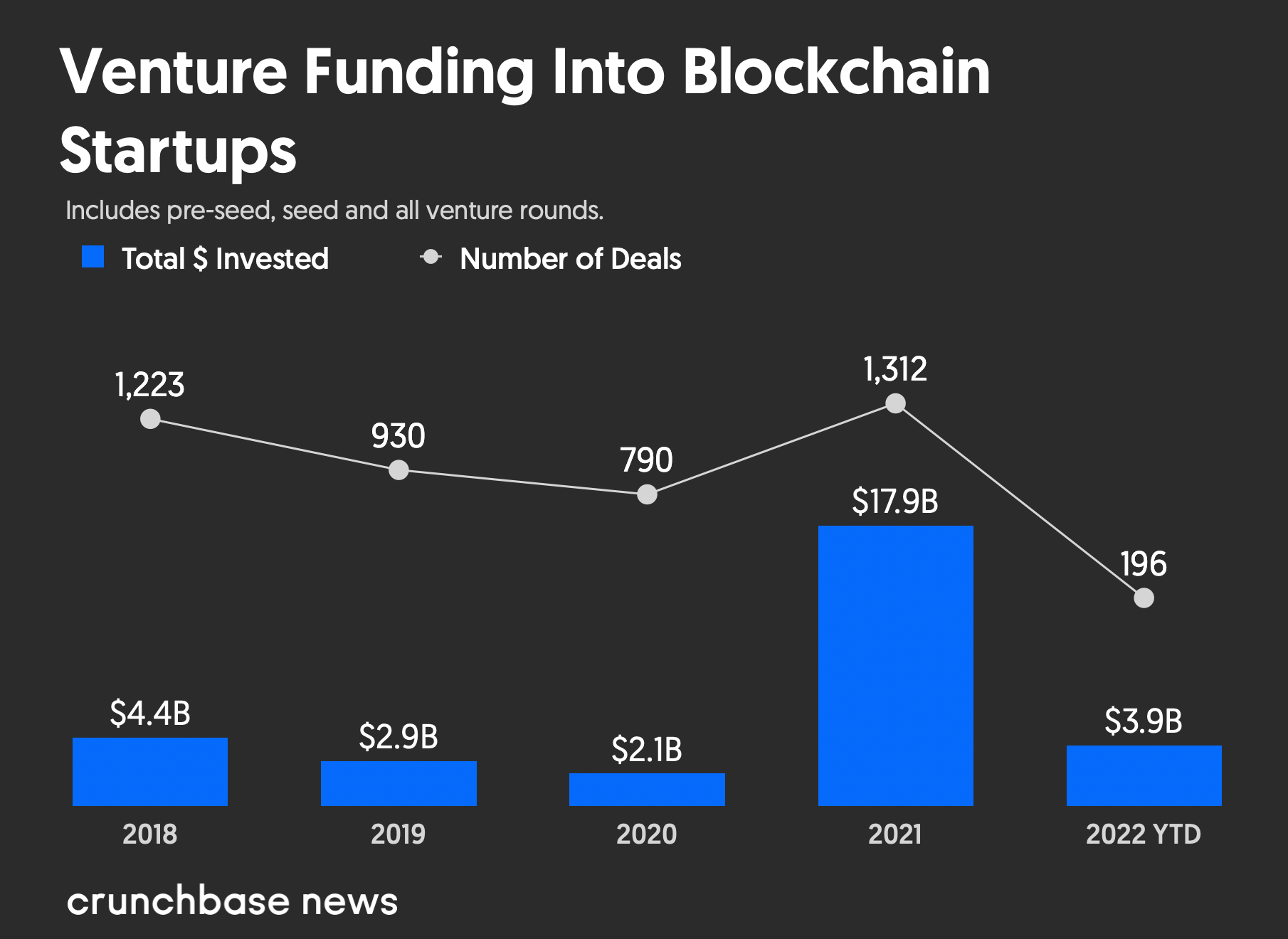As “Web3” and the “decentralized web” have grown as buzzwords in the startup industry, so has investor interest in what some think will be the next iteration of the internet.
Earlier this month—in just about 24 hours—two companies that help developers build decentralized applications announced huge funding rounds.
On Feb. 7, India-based Polygon Technology, a scaling platform for the ethereum blockchain, closed a $450 million round led by Sequoia Capital India at a reported $13 billion valuation.
That was followed the next day by San Francisco-based Alchemy, which provides tools and hosting for those wanting to transact on blockchain and Web3, raising a $200 million “Series C-1” led by Lightspeed and Silver Lake that valued the company at $10.2 billion. Alchemy’s new valuation was nearly triple what it was just four months ago when the company raised a $250 million Series C.
Search less. Close more.
Grow your revenue with all-in-one prospecting solutions powered by the leader in private-company data.
“These valuations are very high,” said Shailesh Lakhani, managing director at Sequoia India, who led the Polygon investment. “Five years ago, Web 2.0 companies would not have gotten these types of transactions.”
Despite those high valuations, investors seem to be warming to the emerging—if still somewhat undefined—space. According to Crunchbase numbers, last year saw about $17.9 billion invested in 1,312 deals in blockchain-related startups. That number dwarfed the $2.1 billion in 790 deals in 2020, and even the former high of $4.4 billion in 1,223 deals witnessed back in 2018.

Thus far this year, investors have poured more than $3.8 billion into startups in the space in 196 deals—surpassing even last year’s record pace.
While not every blockchain-related company describes itself as a Web3 startup, Crunchbase data shows funding to companies that use “Web3” and the “decentralized web” in their descriptions also have seen a significant jump in funding. The previous year saw $380 million in 93 deals go to companies that describe themselves as Web3 startups, a huge spike from just $20.5 million in 30 deals in 2020.
Already this year, investors have poured more than $173 million into startups in the space in 34 deals—seemingly showing an increasing awareness of the often vaguely defined space.
What is Web3?
For most, the term Web3 refers to moving the internet toward decentralized technologies like blockchain—and away from the large tech players some think have too much control of it.
Supporters say Web3 would increase transparency and accessibility, and make the internet open to more innovative technologies. Others—such as Twitter co-founder Jack Dorsey—say Web3 already has become centralized and owned, not by big tech, but venture capital.
Regardless of the debate around it, investors seem intrigued with the premise, and right now seem fixated on its infrastructure and helping developers build it out.
“We’re at an inflection point that will lead into an even faster pace of innovation and growth in Web3, and Alchemy is at the center of that,” said Ali Yahya, general partner at Andreessen Horowitz, who led the firm’s Alchemy investment. “It’s the layer in the stack that bridges the gap between the raw infrastructure and the Web3 developers who will build the killer applications for this technology and take it mainstream.”
Building a new platform
Yahya compared the new infrastructure play to how Microsoft and AWS built platforms that powered the computer and internet industries, with Alchemy doing something similar for developers building blockchain products. Those types of platforms that contribute to building out Web3 could continue to see interest, he said.
“As Web3 continues to gain momentum and proliferate, there’s a massive opportunity for established and emerging companies alike to build out the infrastructure that will enable its continued growth and development,” he said.
Nikil Viswanathan, co-founder and CEO of Alchemy, said his company has witnessed the increasing interest and growth firsthand. Just since October, Alchemy has seen a 3x growth in teams building on the platform and more than $105 billion in annualized transactions processed across the network—up from $45 billion in October. He added the company is extremely profitable and hasn’t touched the cash from the last several rounds it’s raised.
“Web3’s growth is accelerating, both through the creativity of native developers and an increasing number of the world’s most recognized brands rapidly adding Web3 capabilities to their core products,” Viswanathan said.
Examples of others addressing Web3 infrastructure include Google’s cloud division recently forming a group to build business around blockchain applications; cryptocurrency company Coinbase’s work on “Coinbase Cloud”; and blockchain infrastructure start-up Blockdaemon, which announced its Series C last month, valued at $3.5 billion, Yahya said.
Other Web3-related tech that is of interest to investors include Layer2 protocols that help companies scale on ethereum—which has the most developers of any blockchain—as well as zero-knowledge proofs and other infrastructure tech that powers enhanced privacy on the blockchain, added Yahya, who has helped with investments in other Web3 companies like Matter Labs, Iron Fish and Nym Protocol.
Polygon is an example of a Layer-2 firm, which helps ethereum’s network by moving some transaction details off. Building on ethereum can be slow and expensive, and by moving some information off the network developers can more easily scale.
“When we take our scaling vision to its conclusion, it’s easy to see Polygon becoming an internet-wide platform analogous to a decentralized, community-first version of Amazon Web Services,” said Arjun Kalsy, vice president of growth at Polygon.
Lakhani, who has been following the Web3 world for about five years, said Polygon is the most practical way to build on ethereum.
“Scaling on ethereum is the biggest problem in the crypto world,” he said.
While building out the infrastructure issues around Web3 is proving popular with investors at the moment, Lakhani said he does believe that issue will be solved in the next couple of years. The next focus for Web3 will be what people use on it, be it games, finance, social or other services.
“We know what the AWS of Web3 will be,” he said. “What is the Facebook, Twitter and Snapchat of Web3?”
Illustration: Dom Guzman

Stay up to date with recent funding rounds, acquisitions, and more with the Crunchbase Daily.





![Illustration of stopwatch - AI [Dom Guzman]](https://news.crunchbase.com/wp-content/uploads/Halftime-AI-1-470x352.jpg)






67.1K Followers